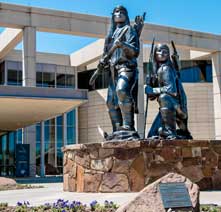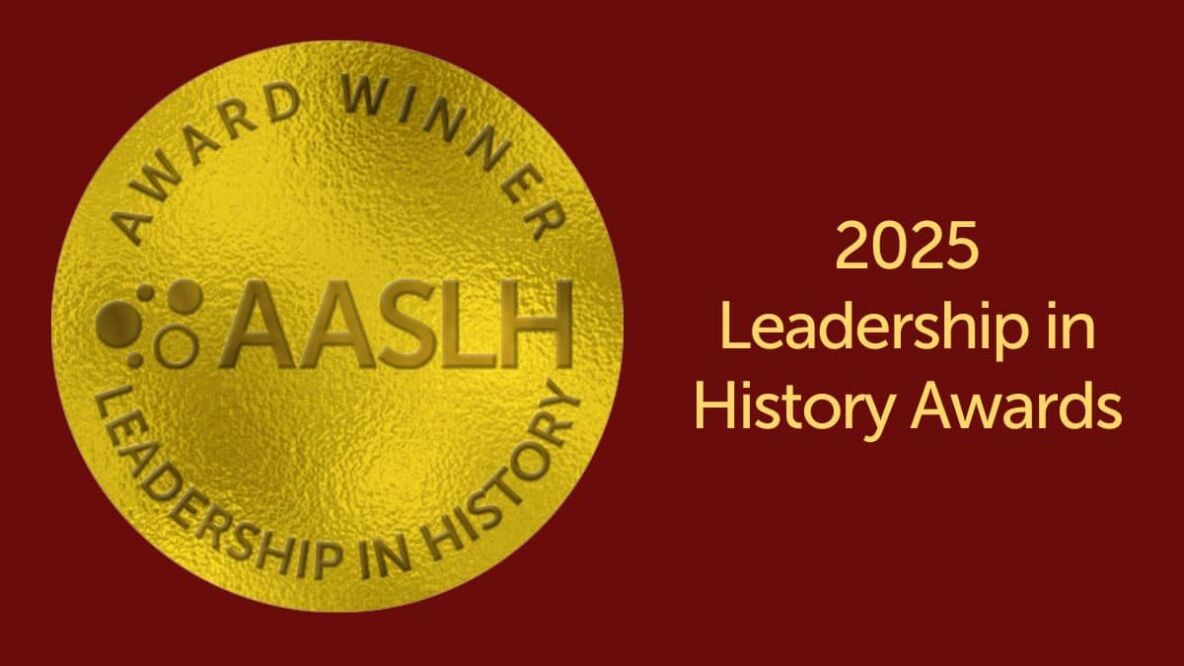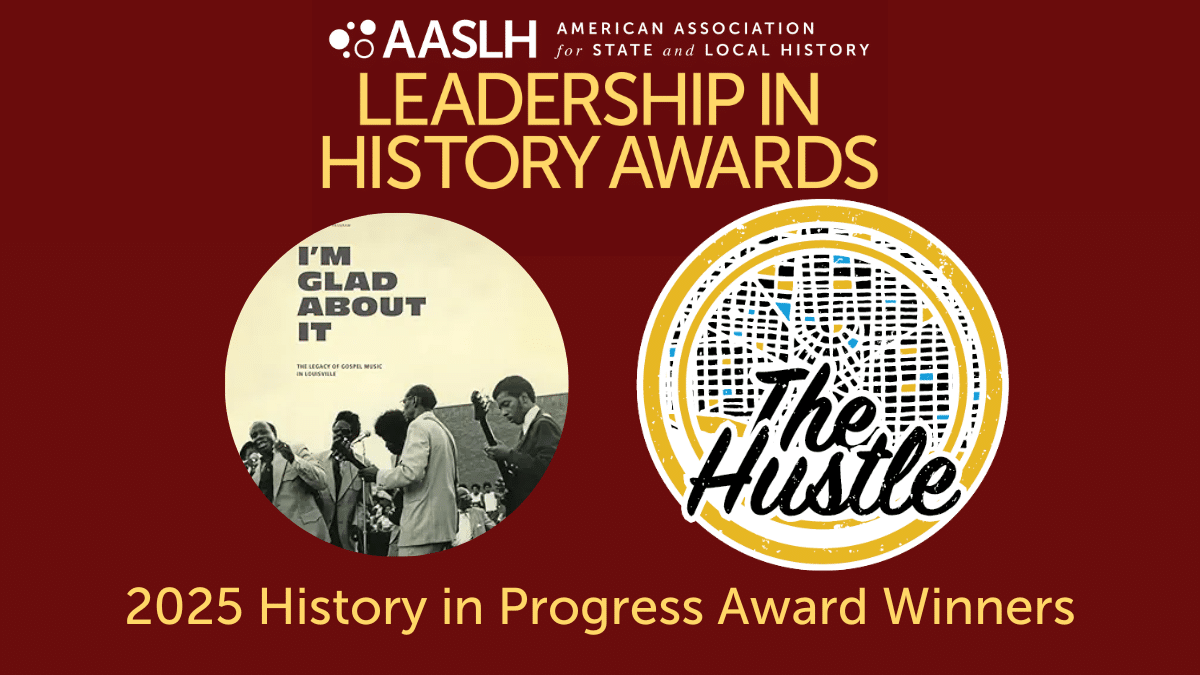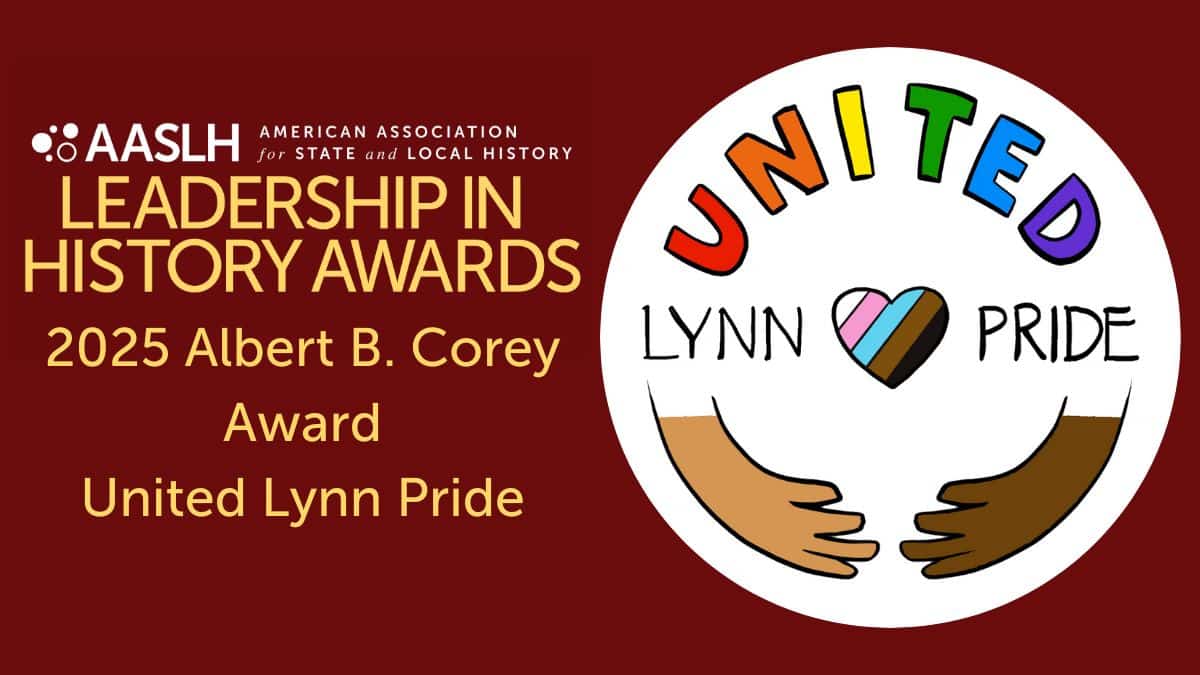
We are presenting this column which appears in the Oklahoma Historical Society newsletter as an example to AASLH members and others who are willing to send their own messages to federal and state officials on behalf of history and museums. The Smithsonian Institution, National Endowment for the Humanities, Institute of Museum and Library Services, National Park Service, and other government entities that serve the history community have been the target of recent executive orders from the White House. Trait Thompson is the Executive Director of the Oklahoma Historical Society, which is an Institutional Member of AASLH.
The day-to-day work of the Oklahoma Historical Society to collect, preserve, and share the history and culture of the people of Oklahoma is necessary, but it is not easy. It takes committed partners at the local, state, and federal level to fully execute our mission. Thanks to the partnerships we have developed in our 132 years of existence, we are able to impact more people than we ever could by doing this work alone. In the last few months, there have been concerning developments at the federal level, which, if fully realized, will change the landscape of our museum community for years to come.
Many of you who may be reading this column may not be aware of how much of a role the National Park Service (NPS), National Endowment for the Humanities (NEH), National Endowment for the Arts (NEA), and the Institute for Museum and Library Sciences (IMLS) play in the exhibits and programming of, not only the OHS, but museums in urban and rural communities across Oklahoma. Federal grants through each of these entities have ensured quality historical education and preservation activities are carried out, particularly in underserved locations.
Housed within the OHS is the State Historic Preservation Office (SHPO). This office is responsible for administering the National Register of Historic Places program, historic tax credits, the Section 106 program which ensures federal projects address adverse historical effects, and several other functions. Sixty percent of SHPO’s work is funded through the NPS. Earlier this year, when NPS was ordered to halt all its activities, SHPO’s work was put on hold due to the uncertainty of funding availability. And recently we learned the NPS Trails Division along with the Route 66 coordinator was eliminated, just as we are nearing critical final preparations for the 100th anniversary of the Mother Road.
As I write this column, I have just learned the IMLS and the NEH have essentially been ordered to cease operations. There is no doubt this will have a negative impact on Oklahoma’s museums. The IMLS provides grants to museums for collections preservation and staff training in addition to strategic planning. Through Oklahoma Humanities, which receives its funding from the NEH, the OHS has received hundreds of thousands of dollars in grants since the 1970s. In recent years, we have received grants for the Wild West Show at Pawnee Bill Ranch and Museum, the Folk Life Festival at the History Center, a special discussion on Indigenous heritage and culture, and the Farm to Table Festival. Last fall, we applied for a $60,000 planning grant from NEH for new exhibits at the Pioneer Woman Museum in Ponca City. We were due to hear whether we received the grant any day now, but I suspect we now know the answer.
Our museums are part of the cultural fabric of this country. They educate and inspire. More importantly, they are the keepers of our shared history to ensure we learn from it and never forget it. These agencies I have discussed in this column are not just part of the alphabet soup of the federal bureaucracy that we can do without. They serve an important role. Without these institutions, museums across our state may be forced to cut staff, reduce educational programming, cancel new exhibits, and in some cases, close their doors.
If museums, historical education, and preservation are important to you, I encourage you to make your feelings known to your federal elected officials in a respectful way. The future of our history may depend on it.
Photo Courtesy of the Oklahoma Historical Society



